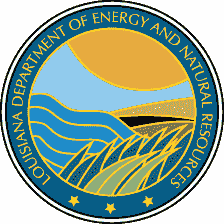Top Stories
Lake Charles LNG Facility Begins Liquefaction Permit Process
Federal permission to build liquefaction facility critical to exporting domestic natural gas
BATON ROUGE –Louisiana Department of Natural Resources (DNR) Scott Angelle said today that operators of a second Louisiana-based Liquefied Natural Gas (LNG) import facility have formally begun the process of attaining the last major federal regulatory approval needed to convert to liquefying and exporting domestic natural gas – a move that could mean billions of dollars of investment in the state to make the conversion, and new markets for domestic energy that could provide greater demand and more opportunities for companies and jobs in state energy exploration and production.
The partner companies in the Lake Charles-based LNG facility, Southern Union and BG Group, had taken steps toward preparing the operation for a potential conversion – receiving approval from the U.S. Department of Energy (DOE) to re-export imported natural gas to nations covered by free-trade agreements with the U.S., and applying for the same permission for nations without such free-trade agreements. As U.S. natural gas supplies have risen sharply and prices have fallen, imported LNG prices are not as market-competitive in the U.S., but compete well in other parts of the world, even with the cost of extra shipping.
In the latest development, Trunkline LNG, which took over the operation when its parent company recently completed a merger with Southern Union, recently submitted a letter informing the Federal Energy Regulatory Commission (FERC) of its intent to apply for permission to build out liquefaction capability.
“We see in this action by Trunkline LNG that the energy industry continues to recognize the opportunities provided with the combination of the vast potential of relatively new sources of domestic natural gas, such as the Haynesville Shale in North Louisiana, and the existing network of pipelines and facilities to put it to use or deliver it to where it is needed,” Angelle said. “As companies invest in those opportunities, that means a stronger economy, more jobs with exploration companies and the businesses that support them and greater domestic energy security – especially if other nations learn to depend on our production for their own energy security.”
In its letter to FERC, Trunkline LNG indicated that, is all approvals are received in the timeline the company has estimated, construction on the Lake Charles liquefaction facility could begin by 2014, with exports beginning in 2018.
DOE is still considering Trunkline LNG’s request to allow export to countries that are not covered by free trade agreements, but not otherwise prohibited for trade.
The other operation that has begun the FERC approval process is Cheniere Energy Partners, which announced in 2011 that its subsidiary, Sabine Pass Liquefaction LLC, received DOE approval on its request to export LNG from its Cameron Parish site to nations not covered by free trade agreements, after DOE had approved exportation to U.S. free trade partners in 2010. Cheniere’s application to the Federal Energy Regulatory Commission for approval to build out liquefaction capacity is currently under review.
Sempra, owner of the Cameron LNG import facility near Hackberry, has also received permission to re-export to nations covered by free-trade agreements and applied for DOE export permission for nations not covered by such agreements. Sempra has indicated interest in building out liquefaction capability, but has not yet filed formally with FERC.
News Archives »
